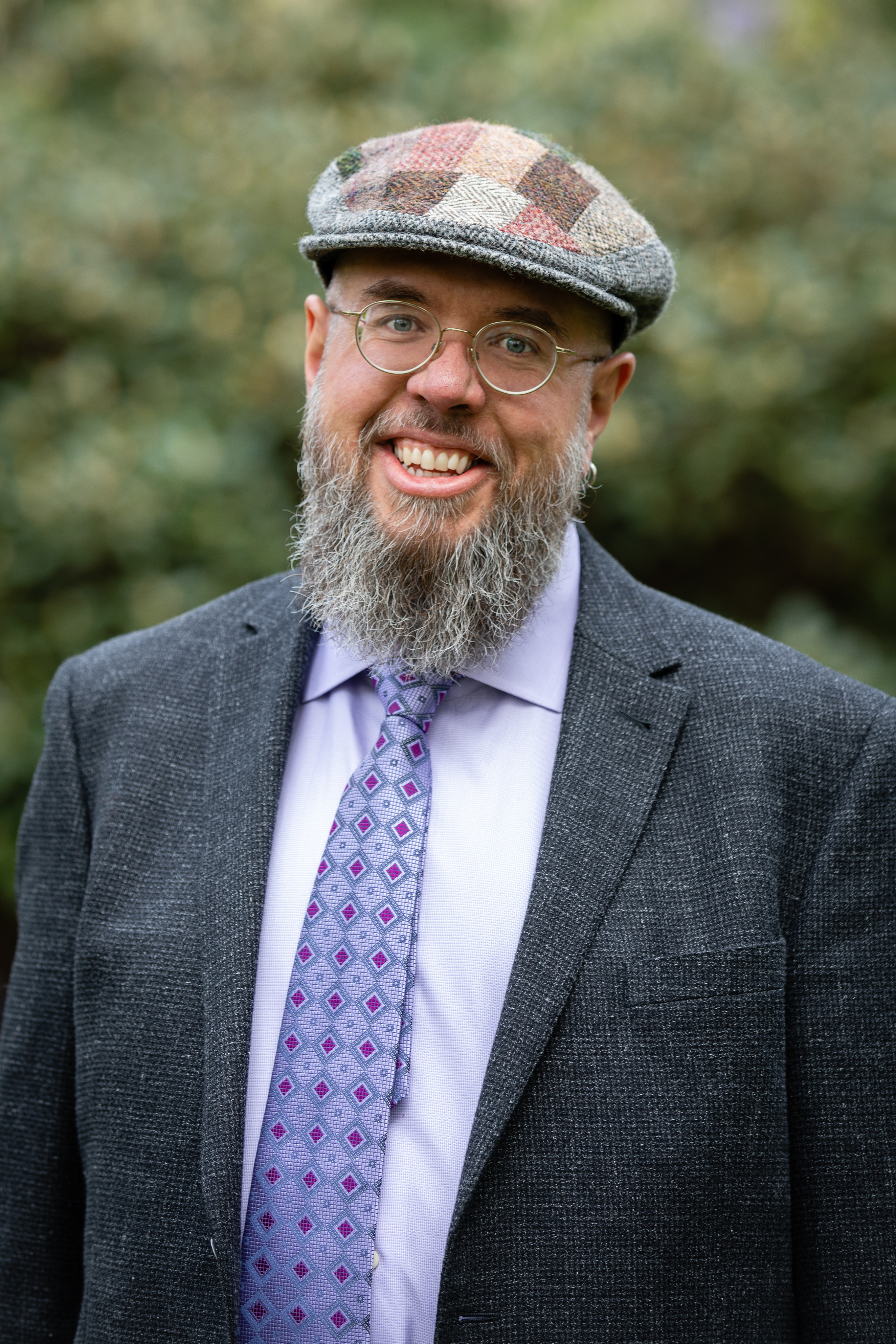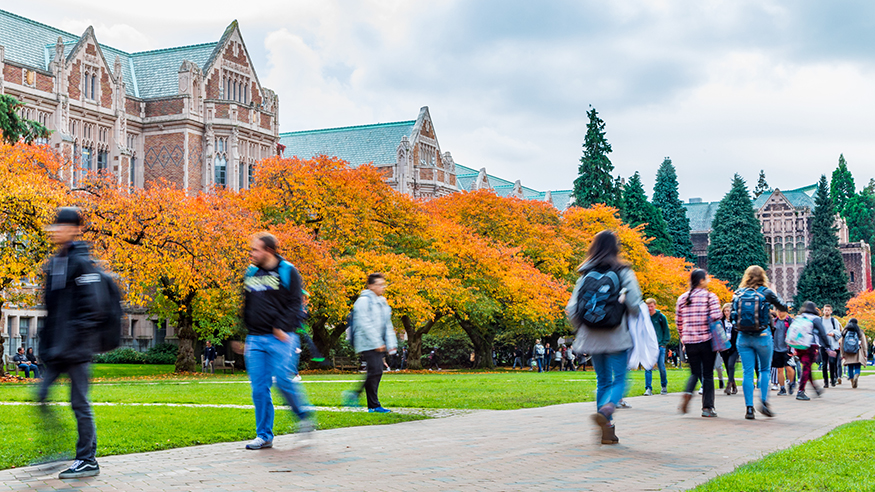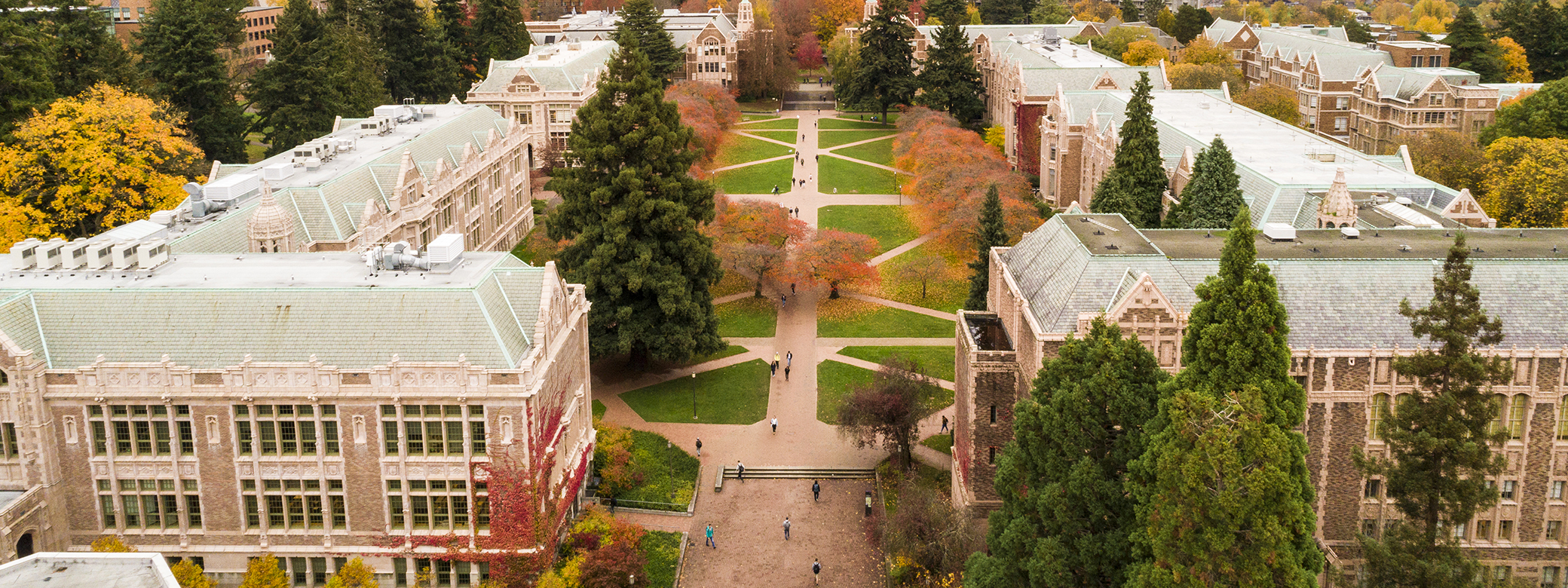
Fall Quarter is here. I’m walking around campus with a bounce in my step. I’m glad once more to hear the laughs and thunder at thirty past the hour, when our undergraduates pour out from classrooms into the Quad. After three pandemic-disrupted autumns, I’m relishing the innocent joy of togetherness.
I’m also reflecting on an astounding fact: We teach more than fifty languages at the University of Washington. Almost none of our peers can say that.
Are you a K-Pop fan? You can take Korean here. Interested in big-power politics? We have Russian, Ukrainian, German, and Chinese. Want to learn about the Middle East? We teach Arabic, Hebrew, and Turkish. I marvel at the diversity of our offerings: Portuguese, Urdu, Finnish, Indonesian, Italian, Slovene, and so many more, including the Indigenous languages Lushootseed and Inuktitut.
We here in the UW Humanities Division strive to “open the world” for our students. We want them to become knowledgeable, empowered, and ethical citizens of the globe. If they are going to succeed in this increasingly interconnected world—if they are to tackle the truly planetary challenges that face us, such as pandemics, climate change, and food insecurity—they must learn to appreciate the many profound differences among peoples and nations.
We also want them to learn to bridge those gaps. For the last several years, the UW Translation Studies Hub has been hosting a series of exciting events. In 2021, for instance, a roundtable brought together local experts who could share the joys and frustrations of working as a professional translator. In 2022-2023, the Hub will be concentrating on creating new classes and crafting modules to be added to existing ones. They’ll be helping all of us in the UW Humanities Division update our teaching so it better suits our students’ needs and interests.
We are constantly trying to “open the world” in other ways, too. Thanks, for example, to a generous gift from Cyrus Habib, Washington State’s Sixteenth Lieutenant Governor, we’ve recently been able to establish the Mo Habib Translation Prize in Persian Literature. Our goal is to encourage publication in English of novels and short stories from Persephone countries such as Afghanistan, Tajikistan, and Iran. The news media are forever telling us about war, famine, and disease. It’s vital, as a university, for us to push back and promote other, more life-affirming means and occasions for international connection.
I’m feeling optimistic. The number of students in this year’s entering class who have expressed an interest in majoring in the humanities is up more than 200% since 2018. This cohort of first years is arriving on a campus where so many doors stand open, ready for them to stride through and excel.
Sincerely,
Brian Reed
Divisional Dean of the Humanities
Professor of English, Milliman Endowed Chair of the Humanities

